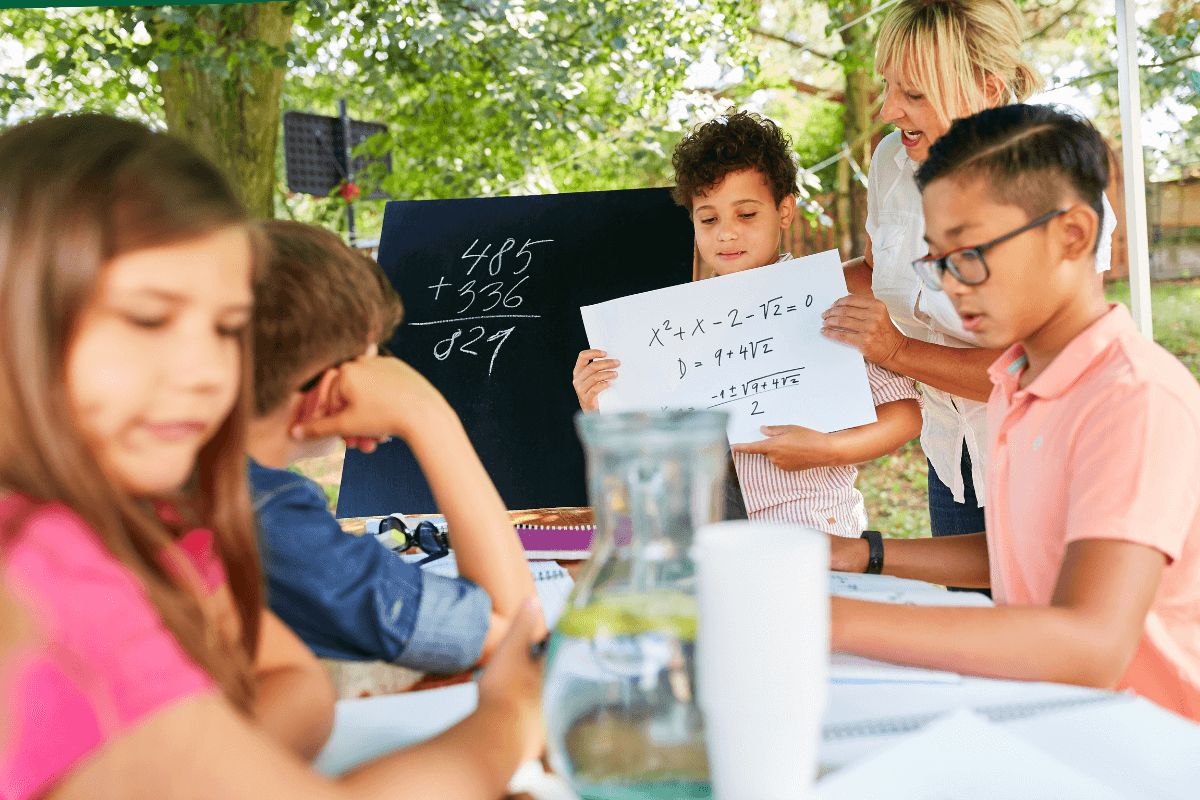Although our lives have returned to what feels like normal, the reality is that we are all still living with the aftermath of COVID. For kids, this means unfinished learning, and for parents, it can mean feeling like we need to do more to help our children catch up. The good news is that there is a lot that parents can do to help their children get through this rough patch.
The Negative Effects of COVID
This is an unprecedented time in education, and to many, it feels like we are learning something new about the adverse effects of COVID every day. Unfinished learning has been outlined as one of the negative effects COVID has had on students around the country.
If you have a child in school, you’re probably familiar with the concept of unfinished learning. It’s when kids are given new material to learn, but for one reason or another, they don’t quite finish. Maybe they get distracted and stop paying attention in class, or they just don’t have enough time to fully understand the material. But what happens to that unfinished learning? Does it just disappear into thin air? Or does it have some sort of lasting impact on our kids’ academic performance? As parents, it’s something we should be aware of and concerned about. So today, we’re going to take a closer look at unfinished learning and its effects on our kids.
Academic Withdrawal
According to recent research, of all the subjects, math learning seems to have taken a bigger hit during the pandemic compared to others. More students are reporting feeling left behind, and students’ growth rate in math is expected to slow during the next few years. The pandemic also widened preexisting achievement gaps hitting children who may have already been struggling with understanding math concepts before school closures, and virtual classrooms took over.
While most students across the country are now back in the classroom, it wasn’t long ago that their world had been turned upside down. The traditional five days a week turned into a hybrid for many students. Districts oscillated between virtual and in-person learning as they balanced the need to keep students safe while providing an effective learning environment. Students may have been faced with new schedules, were assigned new teachers mid-year, or struggled with poor internet connections or Zoom fatigue. It is safe to say that these past two years have been a uniquely challenging time for teachers and students, and it is no surprise that it has left its mark.
For some students, even after all the closure announcements and virtual classrooms, there is still an air of unfinished business lingering in the back of their minds. These students may be experiencing “academic withdrawal” symptoms that could impact them well into the future.
Unfinished Learning
The term “unfinished learning” has been coined to help capture the reality that students were not given the opportunity to complete all the work they would have typically finished in the past couple of years. The majority of children simply learned less than they would have in a typical year. However, some students have disengaged from school altogether and slipped backward, losing the skills and knowledge they once had.
No matter how much education was lost, students may be missing key building blocks of knowledge that are necessary for success. But, it isn’t just academic knowledge that students are missing out on. The fallout from the pandemic threatens to harm this generation’s prospects and limit their opportunities far into adulthood. The ripple effects may hinder their ability to attend university or find a fulfilling job that enables them to support a family.
The Ontario Learning Recovery Action Plan for Students
Ontario has addressed this issue by recently introducing the Learning Recovery Action Plan for Students. This targeted initiative helps bridge students’ learning gaps, support academic success, and focus on overall mental health and wellness. Ontario’s plan is based on the latest scientific evidence and will provide students with the resources they need to succeed.
Although it is too early to know the effectiveness of post-pandemic solutions for unfinished learning fully, the action’s scope is clear. Schools need to recover unfinished learning and reimage the education system to address these gaps in education for the long term. It will be imperative for educators to listen to parents and students, take a holistic approach, and design programs that meet academic and non-academic needs.
At Dropkick Math, we understand the effects that unfinished learning has had on students of all ages. We are one of the fastest-growing programs in Ontario aimed at addressing the education gap experienced during the COVID-19 pandemic. But we are more than just an online math tutor. We address deficiencies while correcting any underlying misconceptions about mathematics. All instructors are qualified Ontario Certified Teachers who can offer differentiated approaches, making it accessible for all learning needs.
If your child shows any signs of unfinished learning, we can help get them back on track and boost their confidence. Learn more about our programs today!





